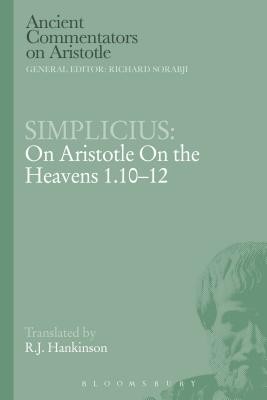
- We will send in 10–14 business days.
- Author: Simplicius
- Publisher: Bloomsbury Publishing PLC
- ISBN-10: 1472557433
- ISBN-13: 9781472557438
- Format: 15.6 x 23.4 x 0.8 cm, softcover
- Language: English
- SAVE -10% with code: EXTRA
Reviews
Description
In the three chapters of On the Heavens dealt with in this volume, Aristotle argues that the universe is ungenerated and indestructible. In Simplicius' commentary, translated here, we see a battle royal between the Neoplatonist Simplicius and the Aristotelian Alexander, whose lost commentary on Aristotle's On the Heavens Simplicius partly preserves. Simplicius' rival, the Christian Philoponus, had conducted a parallel battle in his Against Proclus but had taken the side of Alexander against Proclus and other Platonists, arguing that Plato's Timaeus gives a beginning to the universe. Simplicius takes the Platonist side, denying that Plato intended a beginning. The origin to which Plato refers is, according to Simplicius, not a temporal origin, but the divine cause that produces the world without beginning.
EXTRA 10 % discount with code: EXTRA
The promotion ends in 17d.17:49:10
The discount code is valid when purchasing from 10 €. Discounts do not stack.
- Author: Simplicius
- Publisher: Bloomsbury Publishing PLC
- ISBN-10: 1472557433
- ISBN-13: 9781472557438
- Format: 15.6 x 23.4 x 0.8 cm, softcover
- Language: English English
In the three chapters of On the Heavens dealt with in this volume, Aristotle argues that the universe is ungenerated and indestructible. In Simplicius' commentary, translated here, we see a battle royal between the Neoplatonist Simplicius and the Aristotelian Alexander, whose lost commentary on Aristotle's On the Heavens Simplicius partly preserves. Simplicius' rival, the Christian Philoponus, had conducted a parallel battle in his Against Proclus but had taken the side of Alexander against Proclus and other Platonists, arguing that Plato's Timaeus gives a beginning to the universe. Simplicius takes the Platonist side, denying that Plato intended a beginning. The origin to which Plato refers is, according to Simplicius, not a temporal origin, but the divine cause that produces the world without beginning.


Reviews